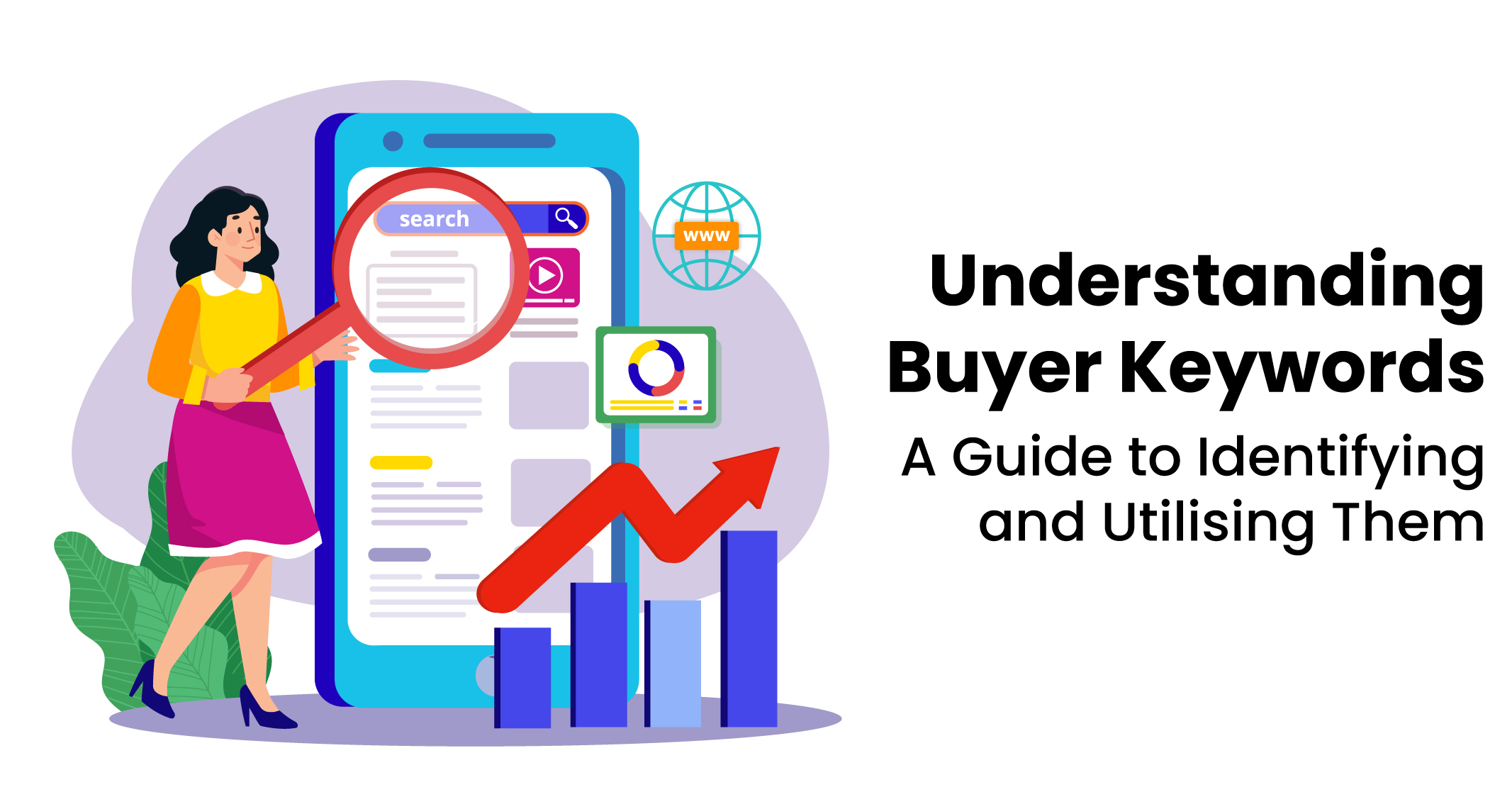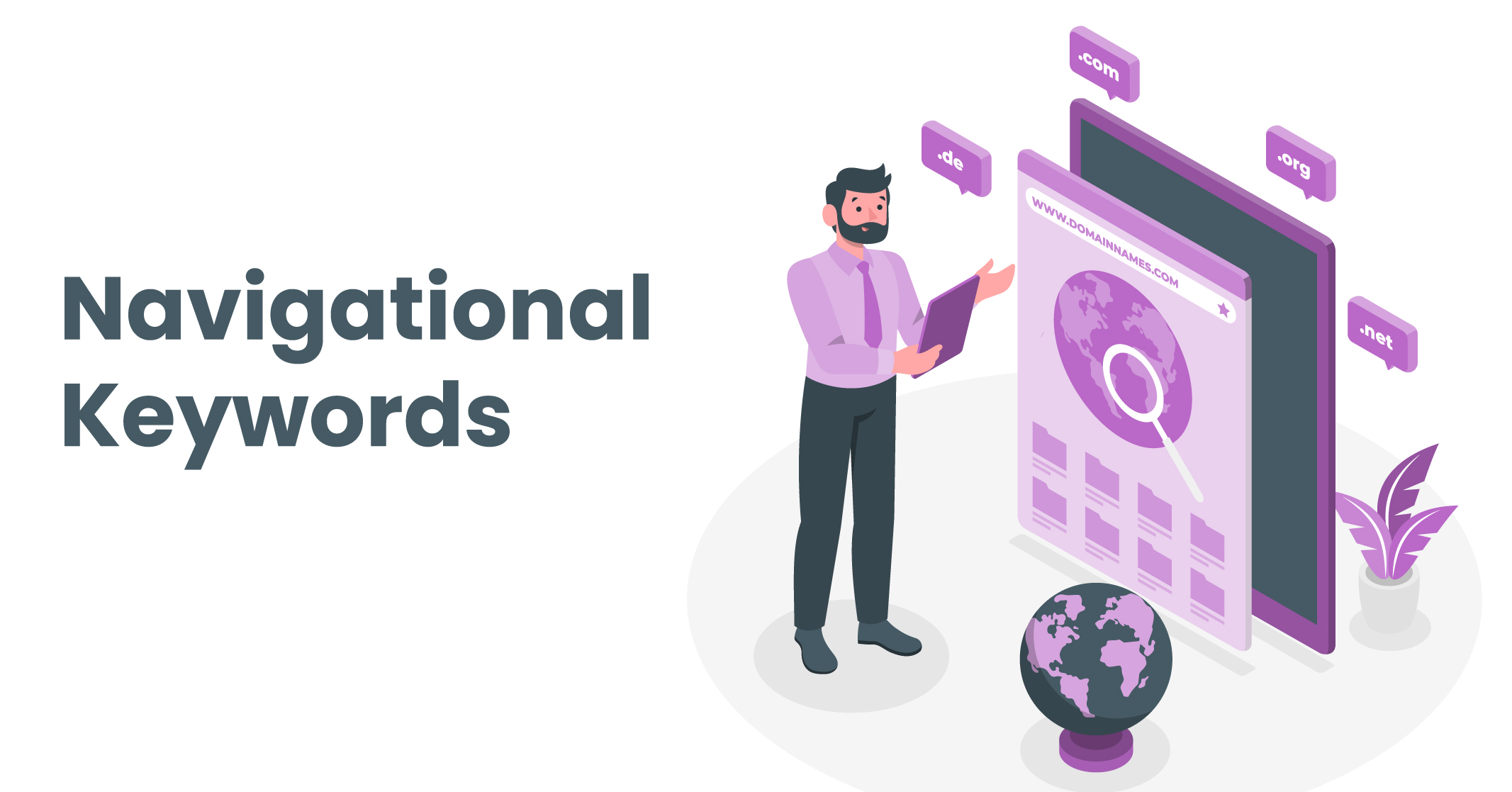I hope you enjoy reading this blog post.
If you want to get more traffic, Contact Us

Click Here - Free 30-Minute Strategy Session
Be quick! FREE spots are almost gone for this Month. Free Quote

Buyer Keywords are specific search terms and phrases used by individuals actively seeking to make a purchase. These keywords indicate that searchers are in the final stage of the buyer’s journey and ready to buy a product or service.
For ecommerce websites, conducting thorough keyword research becomes crucial. Identifying the most effective keywords for the final stage of the buyer’s journey can provide a competitive advantage and justify investments in content marketing. According to over 60% of marketers, leads are among the top metrics used to measure content success.

Click Here – Free 30-Minute Strategy Session
Be quick! FREE spots are almost gone for this Month
This article aims to explore the buyer’s journey and offer insights into discovering the right keywords that enhance conversion rates and drive sales. Additionally, it highlights the significance of buyer intent keywords within a comprehensive search engine optimisation (SEO) strategy.
Understanding the importance of buyer keywords is instrumental in optimising content and attracting potential customers who are ready to make a purchase.
By aligning your content strategy with the buyer’s journey, you can effectively capture and convert qualified leads, ultimately contributing to business growth.
To gain a comprehensive understanding of buyer keywords, it is essential to delve into the buyer’s journey. The buyer’s journey refers to the process customers undergo when seeking a product or service. It consists of three distinct stages: awareness, consideration and decision.
In the awareness stage, customers embark on preliminary research to address their problems, seeking general information and insights.
During the consideration stage, customers shift their focus towards finding specific solutions tailored to their needs, engaging in more targeted searches.
Finally, in the decision stage, customers possess a clear understanding of how to solve their problems and actively compare available options before making a purchase.
By recognising and catering to the different stages of the buyer’s journey, businesses can strategically utilise buyer keywords to align their content and offerings with customer needs, increasing the likelihood of conversions and sales.
When developing an ecommerce SEO strategy, conducting keyword research is a crucial starting point.
What are keywords?
Keywords refer to the words and phrases that users enter search engines to find information, products, or services. In broader terms, they are commonly known as searches or queries.
To enhance the visibility of your website on search engine results pages, it is vital to understand the significance of incorporating high-intent keywords into your web pages.
There are two primary methods to improve your page’s ranking for specific keywords:
These techniques help boost your page’s visibility and improve its ranking for specific keywords without paying for ad placement.
By understanding buyer keywords, leveraging the power of targeted keywords, and utilising both paid and organic search strategies, you can enhance your website’s visibility, attract relevant traffic, and ultimately drive conversions and sales.

High-intent keywords, also known as high commercial intent keywords, indicate a strong intention of consumers to make an immediate purchase, inquire about a service, or take action leading to a sale. These keywords are highly valuable for conversion and are closely tied to a customer’s purchase intent.
Purchase intent is the likelihood of a visitor on your website making a purchase or engaging in a desired action. Marketers and website owners analyse factors such as buyer personas, website engagement, past purchases, and interactions to assess and measure purchase intent.
To capitalise on high-intent keywords and purchase intent, it is effective to target visitors who have previously made purchases or engaged with your website. Additionally, utilising product-specific keywords, such as “best macro lens for nature photography,” can attract new customers.
By incorporating a buyer keywords strategy that focuses on high-intent keywords and understanding purchase intent, businesses can optimise their content and targeting to drive conversions and sales.
Buyer keywords are specific search terms indicating a person’s intent to make a purchase. To maximize the effectiveness of your digital marketing strategy, it’s crucial to identify the buyer intent keywords used by your target audience and incorporate them strategically into your content or paid advertisements.
Rather than attempting to optimize your website or invest in every related term or phrase, it is more effective to be intentional with your keyword usage. Understanding the four types of buyer keywords is essential for effective SEO planning.
To optimize your SEO strategy, utilize a buyer intent keyword list and categories keywords based on their type to ensure targeted and focused content that resonates with your potential buyers.
So, what are the types of keywords?
Informational keywords are search terms that typically begin with words like “how,” “what,” “why,” “where,” “guide,” “ideas,” “best,” or “tips.” Users using these keywords are typically seeking information rather than showing immediate buying intent. Examples of informational keywords include “best chocolate cake recipes” or “how to build a website.”
These keyword phrases serve the purpose of informing potential customers that you can provide solutions to their problems or offer valuable information. While they may not directly lead to immediate purchases, they play a crucial role in building awareness and establishing your expertise in the field.
Here is a list of informational keywords:
By incorporating informational keywords into your content, you can attract and engage users who are seeking knowledge or seeking solutions to their problems, thereby establishing your brand as a reliable source of information and building a foundation for potential conversions in the future.

Navigational keywords are search terms utilised by users who are seeking a particular website or webpage. During this stage of the buyer’s journey, customers employ keywords that include brand names, specific product names, or services to locate the exact page or site they are searching for. For instance, an example of a navigational keyword would be “Vans sneakers.”
Commercial keywords are search terms used by individuals who are interested in researching products, services, or brands. These keywords typically indicate an intention to complete a transaction or make a purchase in the future. An example of a commercial keyword would be “Peloton reviews.”
Transactional keywords, also known as “buy now” keywords, are phrases that demonstrate the highest level of buyer intent. When users employ transactional keywords, they are ready and eager to make a purchase, with the only remaining question being from whom they should make the purchase. An example of a transactional keyword is “Buy Nike shoes online.”
It is important to note that while transactional keywords play a crucial role in closing sales, focusing solely on these keywords in your SEO strategy is not the objective. Your goal is to identify keywords that align with each stage of the buyer’s journey and create valuable content that incorporates those keywords. This approach aims to attract your target audience, convert them into customers, and cultivate their loyalty.
Consumers typically do not make immediate purchases and tend to prefer buying from someone they know or trust. Therefore, by addressing and providing solutions to informational searches through your content, you can engage with potential customers early on in their buyer’s journey.
By strategically incorporating buyer keywords into your content, you can guide users towards choosing your product or service while establishing trust and authority in your industry.
When considering transactional vs informational keywords, it is essential to strike a balance and optimise your content to address the needs of customers at different stages of their buying process.
To effectively incorporate buyer keywords into your strategy, it is crucial to identify keywords with a substantial search volume and low competition.
Fortunately, there are various platforms and keyword research tools available to assist you in this process. Here are some recommendations on how to be intentional in integrating target keywords that encourage visitors to purchase on your website.
To discover buyer intent keywords relevant to your industry, product, or service, conducting a Google search can be a valuable approach. When searching, pay attention to keywords that exhibit high purchase intent, often distinguished by multiple ads appearing at the top of the search engine results page (SERP). These keywords are typically accompanied by direct calls to action, such as “Buy Now,” “Start Your Free Trial,” “Promo,” or “Get Your Free Gift.”

Utilising a keyword research tool can greatly enhance your ability to identify valuable buyer keywords for your business. These tools provide valuable insights into search volume, competition levels and related keywords, enabling you to make informed decisions about which keywords to target in your content and marketing efforts.
Here are a few benefits and tips for leveraging a keyword research tool effectively:
Incorporating a reliable keyword research tool into your SEO arsenal can provide you with invaluable data and insights to guide your content creation, increase your website’s visibility, and attract potential buyers with precision and effectiveness.
Learn More: Importance of Keyword Research
To uncover buyer keywords, the Keyword Intent Filter is a valuable tool available in various keyword research platforms.
The Keyword Intent Filter classifies keywords into four distinct buyer intent categories: Navigation (N), Informational (I), Commercial (C), and Transactional (T). Commercial and transactional keywords are particularly advantageous when seeking to attract enthusiastic and ready-to-buy visitors to your website.
These keywords are commonly used by searchers who have progressed in their buying journey, possessing a clear idea of what they desire and a readiness to act.
To assess the conversion potential of your keywords, conducting A/B testing can be highly effective. A/B testing involves comparing the performance of two options to determine which yields better results.
For example, let’s consider a scenario where you operate an online store specialising in children’s toys. You can experiment with different transactional keywords on specific pages to gauge their impact on purchase behaviour. One page may present a ” gift with purchase,” while another offers a “promo code for 10% off.”
By monitoring the performance of both pages over a few months, you can analyse the data and identify which keyword approach generated superior outcomes in terms of conversions.
A/B testing enables you to make data-driven decisions by evaluating the effectiveness of different keywords and fine-tuning your marketing strategies to optimise conversion rates.
Learn More: The 5 Most Popular Digital Marketing Strategies for 2023
To connect with your customers effectively and achieve your business objectives, conducting keyword research is crucial. By identifying and targeting relevant terms and phrases, you can enhance your chances of capturing leads and driving sales, especially using buyer keywords.
Whether you’re embarking on a new SEO project or refreshing your website, it is essential to include a well-rounded and pertinent list of keywords in your SEO strategy. These keywords will play a significant role in boosting your online visibility and attracting the right audience.
To optimise your buyer keyword strategy and drive impactful results, consider partnering with Traffic Radius. Our expert team can assist you in developing a buyer keywords strategy tailored to your business goals.
Contact us today to unlock the full potential of your online presence.

LEAVE A REPLY